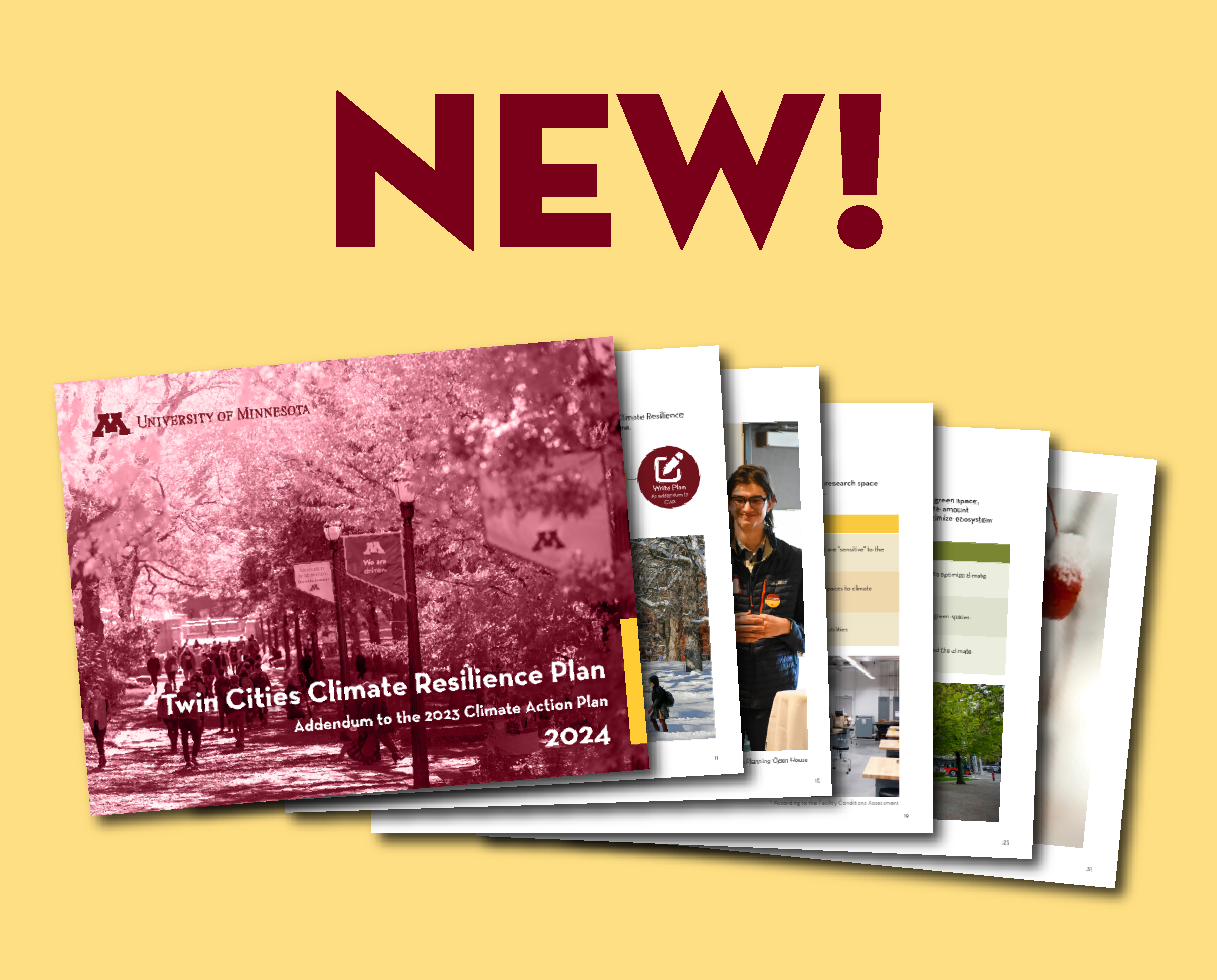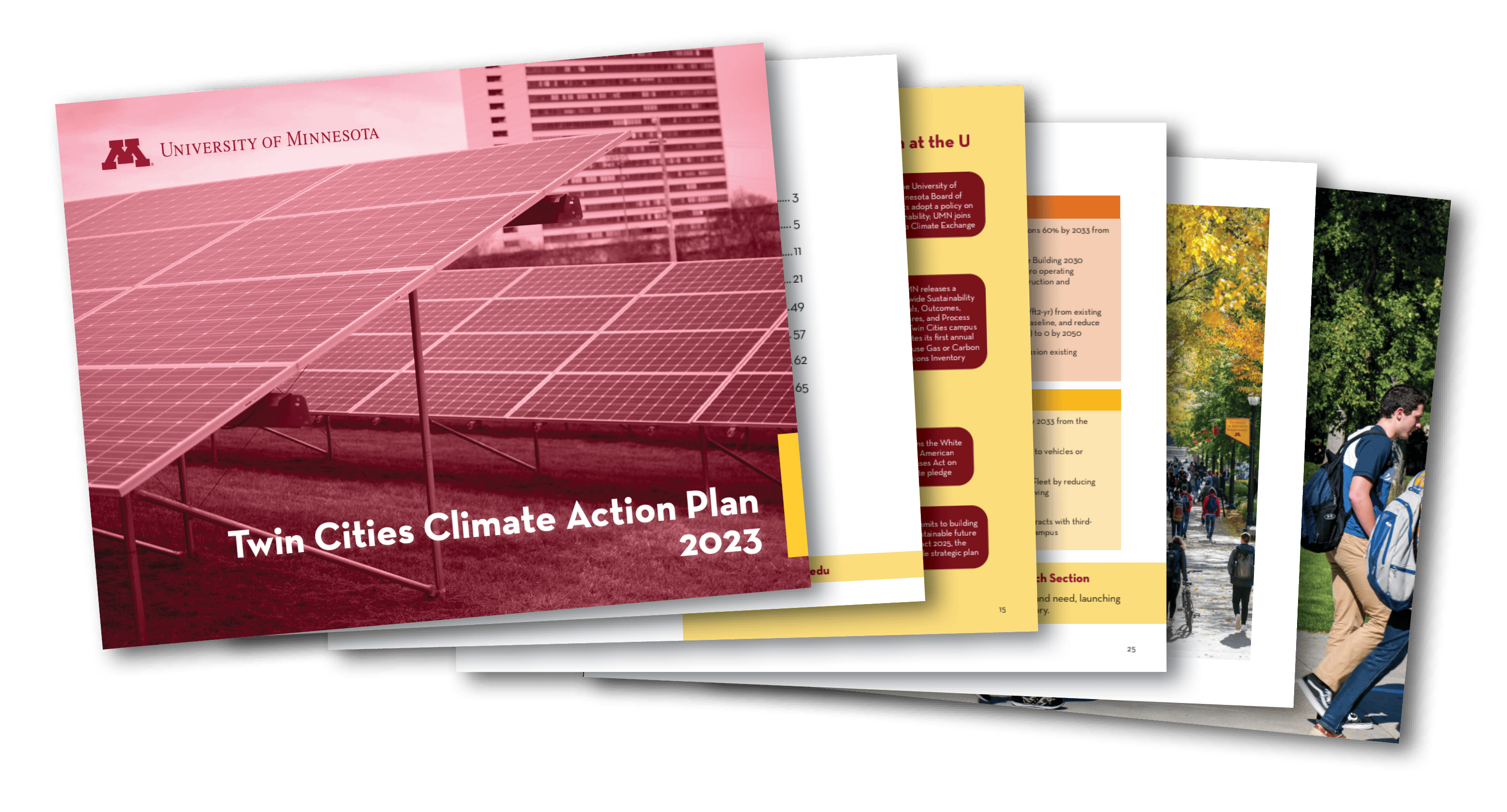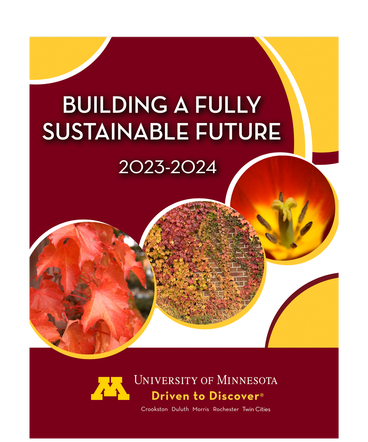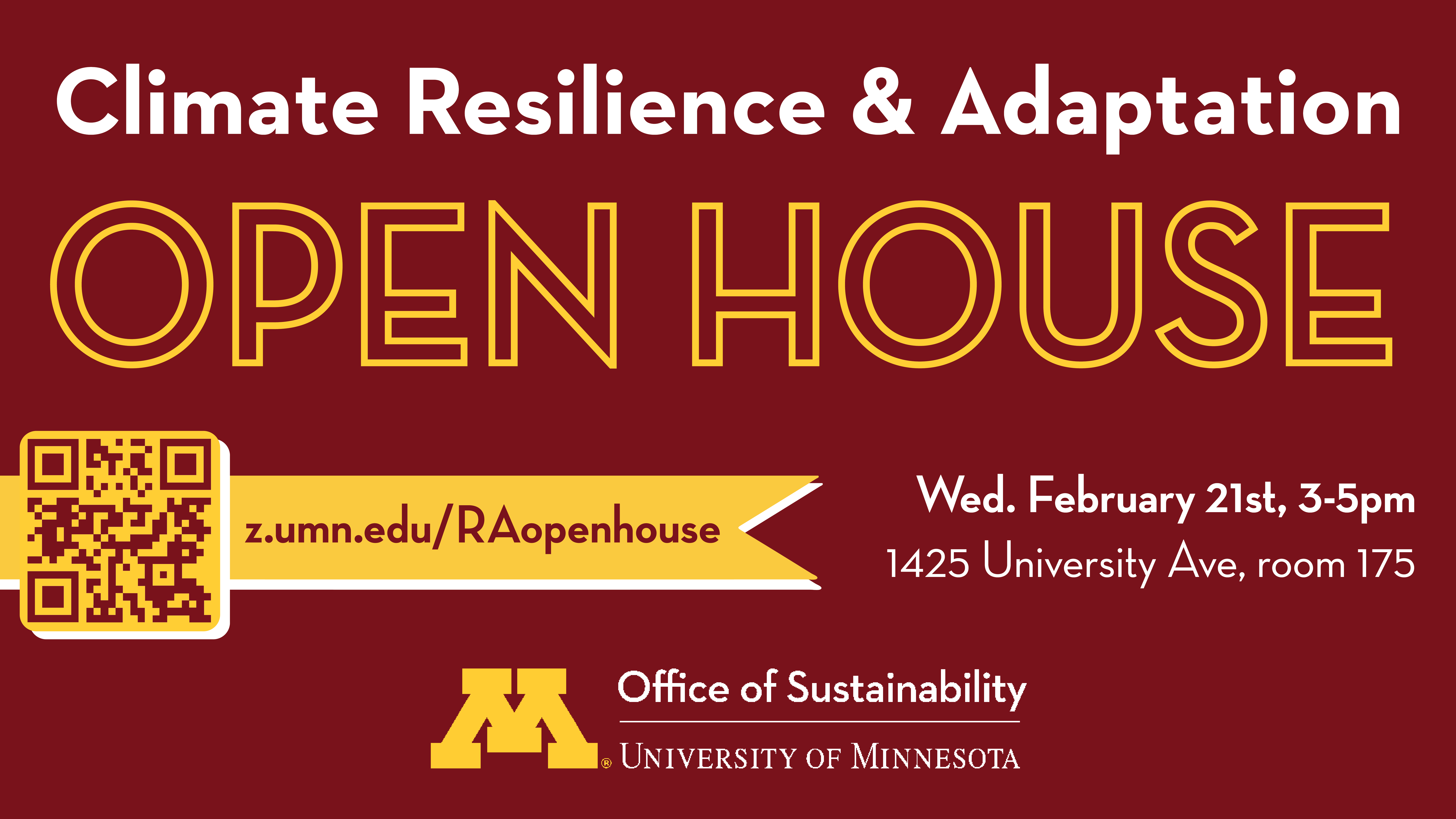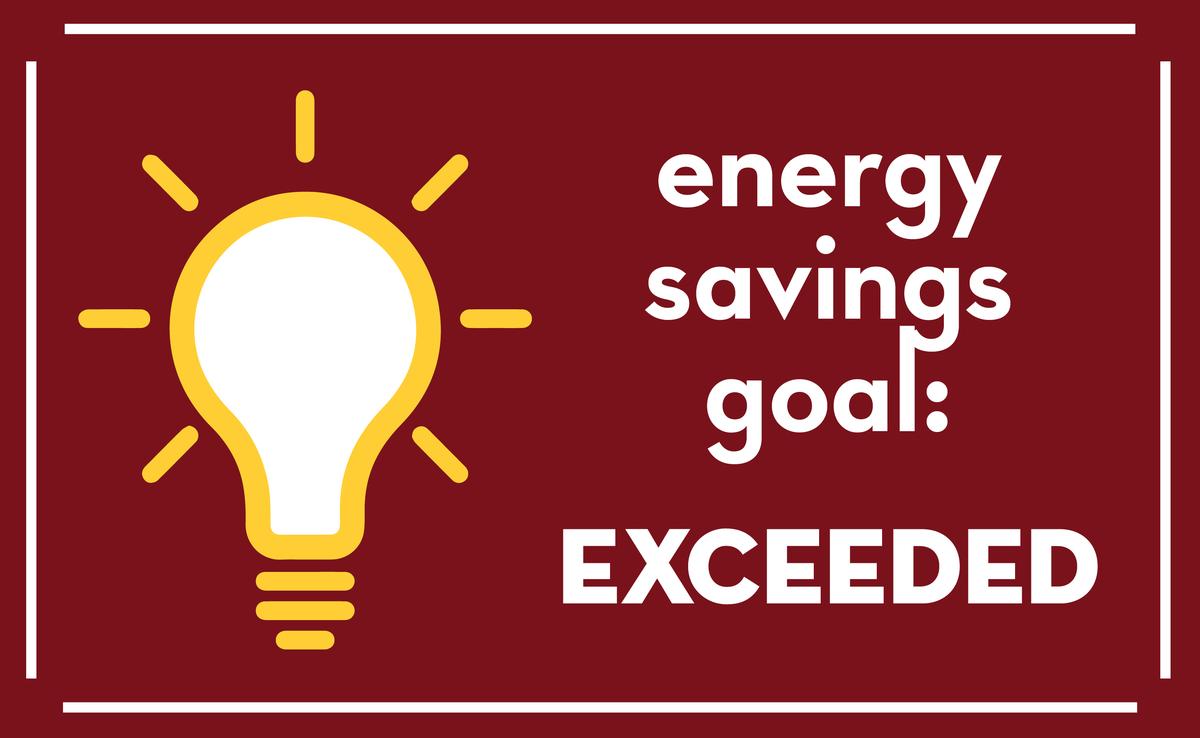
In 2021, the University of Minnesota achieved over 8 million kilowatt hours in electricity savings, exceeding the goal it set in partnership with Xcel Energy! That’s enough electricity to power 880 average Minnesota homes for a year and avoid 5 million pounds of CO2 emissions.
The Minnesota Legislature has deemed energy efficiency very important for decades, as it helps keep energy costs lower, avoid construction of power plants, and reduce pollution. Legislation states that in order to receive state funding for buildings both existing and new, the University must meet energy efficiency standards. Similarly, utilities, like Xcel Energy, have certain energy efficiency goals required by the state. The University of Minnesota and other major utility customers are offered an incentive, in the form of a rebate, to help them reach that energy savings goal.

Energy Management at the University of Minnesota oversees the reliable, safe and efficient operation of mechanical, electrical and civil utilities systems on campus. The University’s work on energy efficiency allows the institution to reduce costs, achieve our sustainability goals, and reduce greenhouse gas emissions. Energy efficiency is the most cost-effective way to reduce emissions of greenhouse gas emissions that cause climate change. This year’s rebate, worth hundreds of thousands of dollars, ultimately goes back into a cycle within the University, allowing us to continue investing in energy reduction and working to reduce our energy use. The University hit 8.2 million kilowatt hour (kWh) in savings this year, meeting electricity consumption and demand reduction (i.e. kilowatts or kW) goals thus earning the University a bonus Xcel rebate! Energy saved is energy the institution didn’t have to purchase, which contributes to keeping tuition costs down for students in addition to benefiting the environment.
With each new year, savings are more difficult to find because the "low hanging fruit" have already been reduced, so Energy Management staff find creative ways to continue saving energy through various projects across campus. While many types of projects in all five campus districts achieved energy savings on campus, the following categories summarize the major projects that helped the University achieve this goal:
Lighting
Most of the lighting projects that have been implemented in the last few years on campus have been upgrading fluorescent lighting to LED lighting, making up 50% of our annual savings. Facilities Management staff replace lighting lamp for lamp or replace entire lighting fixtures for maximum savings at the lowest cost. Last year, Mondale Library lighting was changed from fluorescent to LED lighting. This project saved 869,510 kWh in electricity and the rebate from Xcel Energy totaled $68,875. Energy Management developed several West Bank lighting projects including Mondale Law, Anderson Library, Hanson Hall, and Willey Hall for a total package of 1,563,321 kWh in energy savings!
Ventilation improvement
10% of energy saving projects in 2021 involved improvements to ventilation systems. Many buildings require outside, clean, air to mix with recirculated air to provide the right ventilation for energy efficiency, comfort, and human health. Using the right amount of outside air is managed by knowing the number of occupants in a space, how the spaces are used, and operating hours of a building. For example, some lab buildings require 100% outside air through the building at all times. One significant project that falls into the ventilation improvement category: to optimize HVAC ventilation in the Cancer and Cardiovascular Research Building by adding a Continuous Air Quality Sensing System. This resulted in 621,645 kWh of energy savings and also saved 97 kW in peak demand.
Design Assistance
The Pillsbury Hall renovation was involved with Energy Design Assistance, a program co-sponsored by Centerpoint Energy and Xcel Energy to encourage design teams to reduce energy during renovation, making up 5% of our total energy savings. This project saved 429,066 kWh in electricity, earning a rebate of $67,221. Additional projects include Masonic Institute for the Developing Brain, Lab Schools Child Development Center, and Early Childhood Learning Center.
Other measures that contributed to energy savings include recommissioning of buildings (building "tune ups" representing approximately 5% of our annual energy savings), control upgrades (5%) (upgrading the University building automation systems, particularly focusing on improving the equipment and technology that controls a building’s HVAC system), and motor control (15% of all projects: reducing the air/water pressure in the ductwork/pipe system by slowing down fan/pumps via a speed controller).
It takes a village! Key staff members listed below contributed to the goal and our achievement!
- Blaine O'Brien, Lighting Upgrades
- Mike Sheils, Recommissioning, which is tuning up the building HVAC
- Scott McCord, Chilled Water Utilities
- Joe Krekeler, District Engineering on East Bank
- Joe Fernandez, District Engineering in East Bank
- Maram Falk, District Engineering in the St Paul Campus
- Alex Gelz, District Engineering in the St Paul Campus
- Alex Poor, District Engineering on the North Campus
- Paolo Montenegro, District Engineering on the North Campus
- Brandon Mai, District Engineering in Health Sciences
- Tom King, District Engineering in Health Sciences
- Greg Doornink, District Engineering on West Bank
